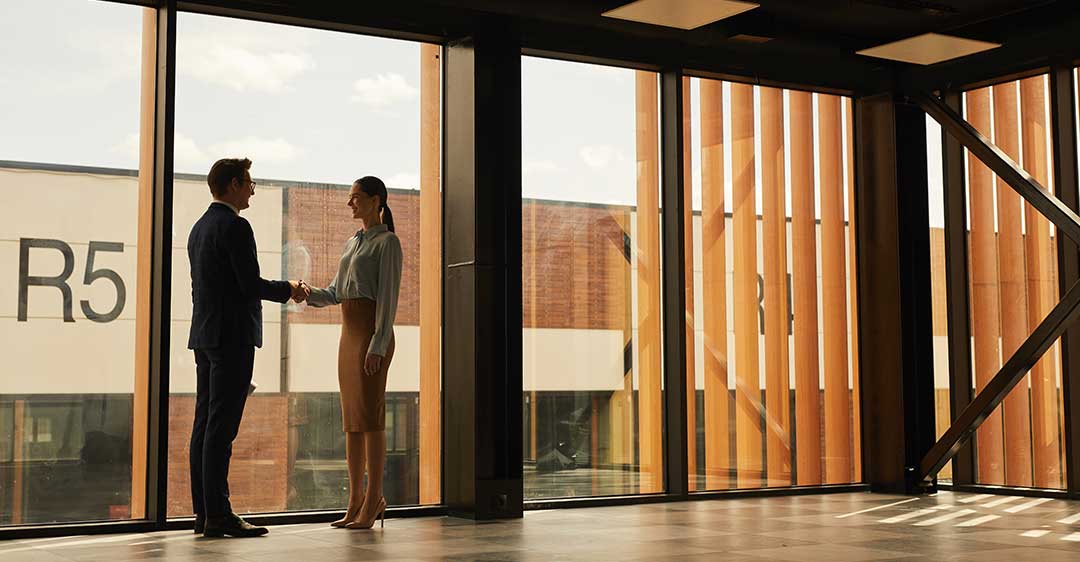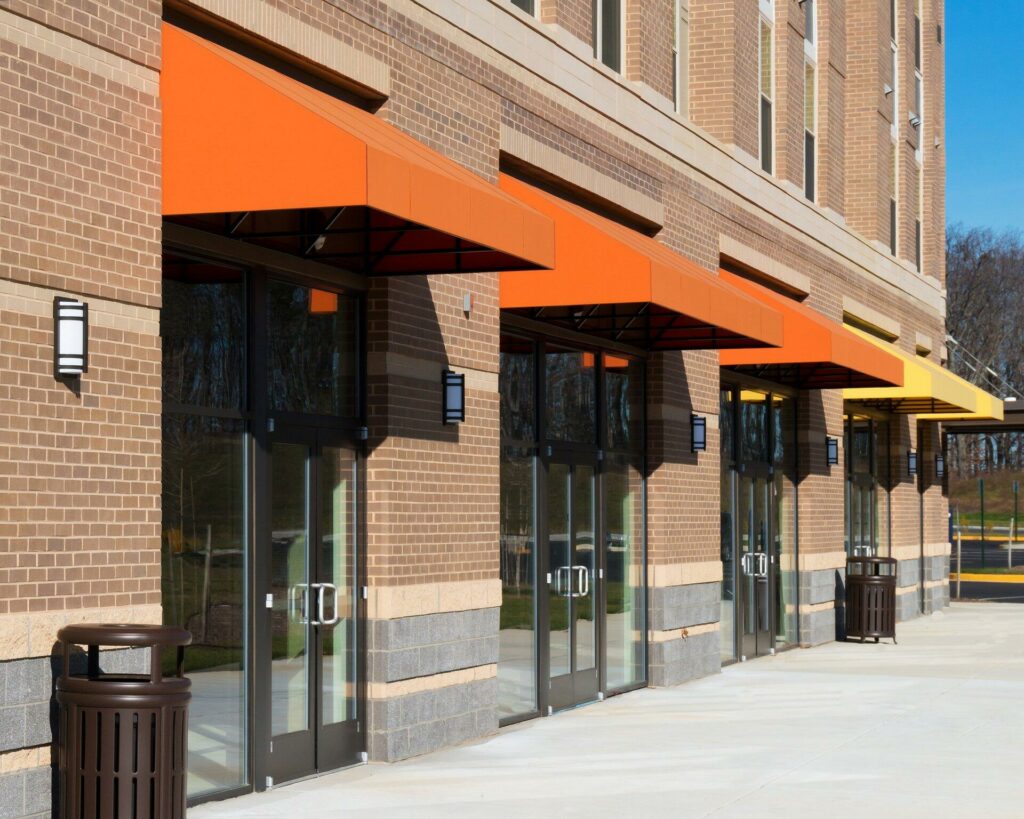
A commercial lease is a contract between a landlord and a business to rent commercial real estate for business purposes. Commercial leases are much more complex than residential leases. The provisions and terms within the contract have a significant impact on the tenant.
As you prepare to lease commercial space or sign a lease renewal amendment, it is important that you take the necessary steps to protect your best interests. It is crucial that you, the tenant, understand how each provision affects your costs and overall responsibilities. Most people need help with deciphering , as well as negotiating the lease terms.
For many companies, the lease is the most significant expense aside from payroll. You need to understand as much as possible about the rights and responsibilities you, the potential tenant, hold as well as those of your prospective landlord. Knowing what is expected of you and what you can expect from your landlord will help you manage your organization more effectively.
Let’s breakdown what it is you need to know, and who you need to contact, before signing on the dotted line.
Commercial Leasing: Important Elements
In this section we will discuss important factors to familiarize you with commercial lease transactions.
Letter of Intent
Chances are you’ve spent days, maybe even weeks or longer, searching out the ideal location with the help of your tenant broker. Once you find the property that is perfect, you don’t want it to slip out of your grasp because someone else sealed the deal before you.
The very first document that needs to be drawn up between you and the landlord is a letter of intent (LOI). This is a preliminary agreement that outlines the important items for both the landlord and tenant. Both of you can evaluate this document to decide if you want to proceed further.
The LOI begins the process of establishing a formal relationship between you and the prospective landlord. It lets both of you know you are serious about moving forward.
Know Your Worth and Theirs
Before walking into a deal, you need to know what you bring to the table. To successfully negotiate a commercial lease, you need to be aware of the benefits you bring to the property and to the landlord. Here are a few to consider:
- Is your brand prestigious, and will it bring added benefits to the landlord?
- What is your credit and operating history?
- What is the intended length of your desired lease? How long do you plan to occupy the space?
- How much of the actual property/building/complex will you need to occupy?
- What is the current leasing market like? Are there significant vacancies or is there a limited amount of space available?
- What specifically do you know about the landlord? Is the property owned by an individual or a corporation?
The answers to these questions may prove useful in negotiations. In a “tenants’ market,” you can ask for improvements, renewal and expansion rights, better rental rates, or other concessions.
An experienced business law attorney is especially helpful in this scenario as various “submarkets” can have different market conditions. Your broker will know and understand the reality of these environments and guide the requests during the negotiations. Knowing your worth and where the landlord stands will help close the lease deal more quickly and avoid frustrating negotiations.
Commercial Lease Terms You Need To Know
In order to negotiate, it’s necessary to understand the terms and language being used on the lease. Each word can have an impact on your tenancy. Always make sure you have an advocate at the table with you, one who can speak up for you and knows what to look for in commercial leases.
Here are a few of the terms you will find in a commercial lease:
Rent
Rent will represent the base amount plus any additional operating expenses and scheduled increases. You aren’t just looking at the cost for your first month. You are also looking at what that cost might be a year or two years from now.
Full Service vs. Net
Full Service means that the landlord covers the operating expenses for the first year. This includes taxes, insurance, and utilities.
Net Rent is when the tenant is responsible for paying some or all operating expenses. This type of lease is more landlord-friendly and is set up in several different ways. When signing a net lease, make sure there is a concession that allows you to audit the landlord to make sure you are being charged fairly.
Premises
Premises refers to the location of the space and area that you are leasing. Under premises, there are two terms you need to be familiar with: Rentable Square Feet (RSF) and Usable Square Feet (USF).
Lease Term
The lease term refers to the length of the lease plus your renewal right. Several factors play into this section, such as the viability of your business model, if space is “turn-key” ready or needs improvement, and the anticipation of rent fluctuation in the future.
Security Deposit
The security deposit will vary tenant to tenant. Credit, operating history, brand reputation, and more all play into this part of the negotiation.
Improvement Allowance and Base Building
An improvement allowance is an amount a landlord is willing to spend to renovate the space you want to lease. In favorable tenant markets, a landlord is more likely to work with a tenant that requests an improvement allowance. Knowing your worth will play into this area of negotiation.
Use Clause
A use clause provides a clear understanding of the intended use of the commercial space.
Exclusive Use
Originally called an anti-competition provision, exclusive use refers to a commercial lease clause that prevents the landlord from leasing space within the same building or complex to one of your direct competitors. This commercial lease element can help protect the health of your business.
Assignment and Subletting
Assignment and Subletting rights allow you to sublet to another user. This protects the tenant and the landlord in the case of downsizing or selling the business before the lease ends.
Renewal rights
You want to protect your business from being forced to move at the close of a lease. Renewal rights is an important discussion to have at the beginning of negotiations. You want to set into place an outlined procedure that requires the landlord to give you a chance to renew your lease before it is offered to anyone else.
Expansion right
An expansion right puts into place what it will look like if you grow and expand within the building you are leasing. There is a chance you may need more space before the lease ends. If so, does the landlord have the means to provide that space?
HVAC
Is it your responsibility to cover the cost of HVAC or the landlords?
Alterations
What alterations will require the landlord’s consent, and which can you move forward without prior approval? This is where you will address non-structural alterations such as painting.
Environmental, ADA, code compliance
You will need to ask the landlord for all warranties regarding compliance.
Rent Abatement for Interruption in Use
Rent abatement for interruption of use means that in the event of a casualty, such as a fire or a hurricane, the landlord will reduce the rental cost or eliminate the cost temporarily. Landlords often require tenants to purchase business interruption insurance that will cover the loss of use of the premises.
Eliminate Removal/Restore Obligation on Tenant
When a tenant departs, landlords sometimes charge for the improvement of the space. Make sure you know if this is in the contract.
The above terms are just a few of the terms that you need to be aware of when negotiating a commercial lease. It is a lot to take in and can get quite overwhelming. That is why it is best to seek legal counsel.
When you bring an experienced commercial leasing attorney to the table, they can assist with the negotiations and work out concessions in your favor.
Why Do You Need an Attorney for Commercial Lease Negotiation?
More often than not, standard commercial leases favor the landlord. By choosing not to use a commercial leasing attorney, you run the risk of getting “the short end of the stick.” Attorneys who are familiar with commercial leasing will work to negotiate the language of the document and work it towards your favor. Generalized attorneys may miss essential nuances; that’s why it’s crucial to make sure the attorney you choose is well versed in commercial leasing.
Your commercial attorney and help you acquire the best possible terms from a potential landlord. You aren’t expected to understand the market data, the relationships of other tenants, or every term used in a lease. That is the job of your attorney. Chances are you might not be 100% clear on what it is you need in a lease.
Your attorney will also help you navigate the complications of what space and clauses best suits your business needs. With an acute attention to detail, your attorney will protect you in the event that verbally discussed terms are conveniently left out of the written lease. You may not notice this on your own. This is a common pitfall of negotiating terms without an attorney.
Contact Boyer Law Firm
Our highly skilled commercial leasing attorneys are at your disposal and are rooting for your success!
At Boyer Law Firm we handle commercial lease negotiation, re-negotiation, renewals and disputes. We can help you determine if the lease terms are beneficial to you and, if not, help you negotiate a better contract. Contact our office today to see how our experienced commercial lease attorneys can assist you.





